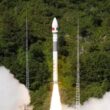The United States has announced an initial funding of approximately $35 million for BAE Systems to modernize its Microelectronics Center (MEC) in Nashua, New Hampshire, U.S.
BAE Systems, a British arms and aerospace company, has become the first recipient of the CHIPS and Science Act funding award, the first federal grant aimed at enhancing American manufacturing of critical semiconductors and keeping America at the forefront of innovation and technological development.
Tom Arseneault, President and CEO of BAE Systems, stated: “This funding will help modernize our Microelectronics Center and fulfill the promise of the CHIPS and Science Act by increasing our capacity to serve national defense programs, growing our technical workforce, and helping to strengthen the nation’s onshore supply chain.”
BAE Microelectronics facility in Nashua
BAE Systems Microelectronics Center (MEC) in Nashua, New Hampshire, is a 110,000-square-foot semiconductor chip fabrication and foundry facility.
The Nashua facility, which employs roughly 3,700 people, has a crucial role in producing cutting-edge technology for Department of Defense (DoD) applications. The facility is one of the only domestic defense-centric six-inch Gallium Arsenide (GaAs) and Gallium Nitride (GaN) High Electron Mobility Transistor (HEMT) wafer foundries.
The funding, coupled with ongoing investments by BAE Systems in modernization and research and development, will be used to purchase new and more efficient manufacturing tools. This move aims to mitigate supply chain risks, increase production capacity, and reduce time-to-build products. The upgraded Microelectronics Center is expected to scale up production to meet the growing demand for DoD technology and provide critical microelectronics to non-defense industries such as satellite communications.

Funding to bolster US defense capabilities and F-35 fighter jet program
BAE Systems has entered into a collaboration with the U.S. Department of Commerce to ramp up the manufacturing of military chips. The money will help the BAE facility in Nashua, quadruple the production of chips used in F-15 and F-35 fighter jets.
The modernization of the BAE facility is aimed at advancing microelectronics technology to meet the demanding requirements of military applications, particularly for projects like the F-35 fighter jet initiative. “Microelectronics are at the heart of the technology and products we make for our defense and aerospace customers—from next-generation aircraft and satellites to military-grade GPS and secure communications,” Arseneault said, emphasizing the significance of microelectronics in defense and aerospace products.
“The project will replace aging tools and quadruple the production of chips necessary for critical defense programs including the F-35 fighter jet program,” the U.S. commerce department said.
US Senators support chips funding
The announcement has received widespread support from political leaders, with Congressman Chris Pappas stating, “On-shoring our production of semiconductors and new investments in technology development strengthen our national defense, all while creating good paying jobs in New Hampshire’s growing tech industry.”
U.S. Senator Jeanne Shaheen, Chair of the U.S. Senate Appropriations Subcommittee, expressed the importance of the funding in strengthening New Hampshire’s role in the nation’s defense manufacturing industry. She stated, “These modernization efforts will strengthen New Hampshire’s integral role in the nation’s defense manufacturing industry for years to come.”
“New Hampshire is a hub for innovation-based businesses and entrepreneurs,” said U.S. Senator Maggie Hassan. “We worked to pass the CHIPS and Science Act to build a stronger economy and protect our national security, and the agreement announced today on modernizing BAE Systems’ Microelectronics Center in Nashua is a yet another way this law will ensure that the United States remains a global leader in advanced technology.”

Funding aims to reclaim semiconductor manufacturing in the US
The award is the first of several expected in the coming months to fund semiconductor manufacturing facilities run by companies like Intel, Samsung, or Taiwan Semiconductor Manufacturing Company (TSMC). The United States is incentivizing the construction of chip factories in the United States to lure back manufacturing. Gina Raimondo said that the United States had become “dangerously reliant” on a few countries in Asia for its chips technology and now needs “to make the chips that go into military equipment in the United States of America, by Americans.”
What is CHIPS for America program?
In 2022, the U.S. administration announced the CHIPS and Science Act as a key element of the broader CHIPS for America Program. This initiative is a part of President Biden’s economic plan to invest in the United States, stimulate private sector investment, strengthen domestic supply chains, create jobs supporting long-term U.S. economic growth, and advance national security.
“As national security becomes as much about the chips inside of our weapons systems as the weapons systems themselves, this first CHIPS announcement shows how central semiconductors are to our national defense,” Gina Raimondo, the U.S. commerce secretary, said. CHIPS for America Program is about “advancing our national security and strengthening domestic supply chains, all while creating good jobs supporting long-term U.S. economic growth,” she added.
Semiconductor industry
- Semiconductors are vital components of the technologies we depend on from cars to smartphones to virtually every electronic device.
- The global semiconductor industry that powers our modern world is projected to become a trillion-dollar industry by 2030.
- For many years, chip manufacturing has been consolidated in Southeast Asia and China.
- The United States accounts for only about 12% of the global semiconductor production, down from 37% some 30 years ago, according to the White House.
World’s top semiconductor producers
Taiwan, China, and South Korea combine for roughly 84% of the global foundry market. According to TrendForce’s 2023 report, Taiwan dominates the global semiconductor foundry capacity at 46%, with China at 26%, South Korea at 12%, the U.S. at 6%, and Japan at 2%.
As government incentives and subsidies are driving local production in China and the U.S., the semiconductor production capacities in Taiwan and South Korea are expected to decline to 41% and 10% by 2027, respectively.
- Taiwan
- China
- South Korea
- United States
- Japan










